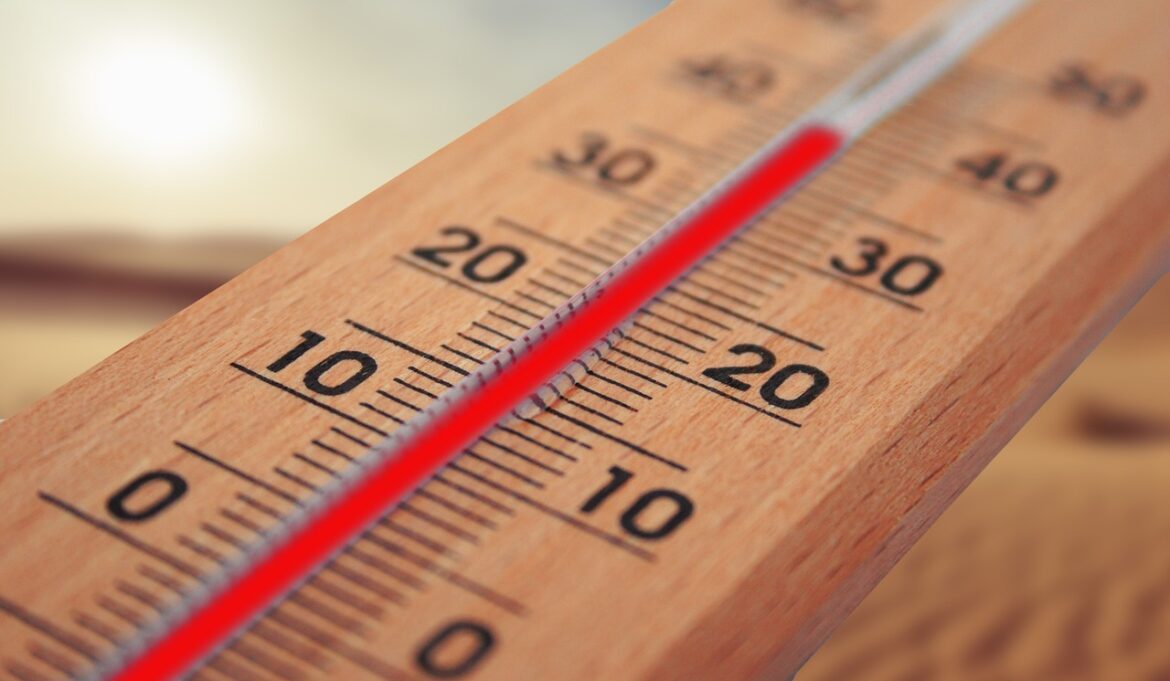Record-Breaking Heatwave Grips Southern United States
The southern United States is currently experiencing an unprecedented heatwave, with temperatures exceeding 110°F in various states. This extreme weather event has led to emergency declarations, widespread power outages, and heightened concerns about the implications of climate change on weather patterns. As cities like Phoenix, Houston, and Dallas record their hottest May temperatures ever, meteorologists warn that this oppressive heat may continue through the weekend, pushing the limits of both vitality and infrastructure.
Unprecedented Temperatures and Heat Advisories
According to Dr. Rebecca Lin, a climatologist at Texas A&M University, this heatwave marks a significant departure from typical weather conditions for this time of year. “May is typically a transitional month, but these temperatures are more characteristic of peak summer heatwaves,” she noted. The National Weather Service has issued heat advisories that extend from Texas across the southern U.S. to as far east as Georgia and South Carolina. This indicates a widespread, critical situation that is affecting millions across the region.
Strain on Power Grids and Public Health Concerns
The extreme heat has placed immense pressure on power grids, leading to rolling blackouts particularly in Texas and Arizona. Utility companies are actively urging residents to conserve energy to avoid prolonged outages. A spokesperson for ERCOT, Texas’s electric grid operator, stated, “High demand combined with prolonged heat is putting immense pressure on our system. We’re doing everything possible to avoid extended outages.” The ongoing situation has been complicated by a rise in heat-related illnesses reported at hospitals, especially cases involving outdoor workers and vulnerable populations. Dr. Michael Han from a Houston-area hospital remarked on the alarming influx of patients facing severe dehydration and heat strokes, declaring it a public health emergency.
Agricultural and Economic Impact
The agricultural sector is not exempt from the consequences of this heatwave. Farmers across the region are struggling to protect their crops, reporting early signs of heat stress that could lead to diminished yields. Agronomist Sarah Martinez from New Mexico commented on the potential long-term repercussions: “This is going to hit rural economies hard.” As the scorching temperatures persist, local economies that rely heavily on agriculture are bracing for an uncertain future, where crop loss could translate into significant financial hardship.
Wildfire Risks Amid Dry Conditions
Adding to the list of challenges posed by the heat are the growing risks of wildfire outbreaks. The combination of dry conditions and high winds has heightened the threat of fire across states such as Texas and New Mexico. Firefighters are engaged in battle against several wildfires, with one notable blaze near Albuquerque having consumed over 10,000 acres. The potential for further fire outbreaks remains a concern as environmental conditions continue to worsen due to the heatwave.
The Climate Change Debate Intensifies
With the extreme weather conditions unfolding, discussions surrounding climate change have reignited. Many scientists assert that global warming contributes to the increasing frequency and intensity of heatwaves. Recent studies suggest that human-induced climate change has made extreme heat events at least five times more likely. Dr. Naomi Green, a climate scientist at Stanford University, emphasized the importance of recognizing the gravity of the situation, stating, “If we don’t take bold action to reduce greenhouse gas emissions, events like this will become the new normal.”
Government Initiatives and Public Response
In light of the heatwave, President Joe Biden addressed the nation, highlighting the imperative need for a swift transition to renewable energy sources and increased investment in climate resilience. According to Biden, “We’re seeing the impacts of climate change in real-time. We have the tools to address this crisis, but we need the political will to act.” Local officials are similarly urging residents to take crucial precautions, advising them to stay indoors during peak heat hours, remain hydrated, and check in on vulnerable community members. Dallas Mayor Eric Johnson stressed the importance of collective community support, saying, “Let’s make sure we’re looking out for one another.”
Looking Ahead: Consequences and Solutions
As temperatures are likely to remain high in the coming days, experts warn of potential cascading effects including further power outages, water shortages, and increased health crises. Addressing these concerns will require not only immediate infrastructural improvements but a broader commitment to sustainability and combating climate change. Dr. Green’s statement that, “Adapting to this new reality is not optional—it’s essential,” encapsulates the urgent need for proactive measures. As residents of the southern U.S. confront these challenges, they find themselves navigating an increasingly hot and demanding future.
Conclusion
The ongoing heatwave in the southern United States serves as a stark reminder of the significant challenges posed by climate change and extreme weather events. With record temperatures, public health emergencies, and economic repercussions, it is essential for governments, policymakers, and individuals to recognize the urgency of transitioning to more sustainable practices. By acknowledging the realities of climate change and implementing effective measures, society can work towards mitigating the impacts of such severe weather occurrences in the future.
FAQs
What is causing the current heatwave in the southern United States?
The heatwave is primarily driven by a high-pressure system, combined with the exacerbating effects of rising global temperatures due to climate change.
How are power grids affected by the heatwave?
Extreme demand for electricity during high temperatures has led to strain on power grids, resulting in rolling blackouts in some areas to prevent system overload.
What precautions can residents take during this heatwave?
Residents are advised to stay indoors during peak temperatures, stay hydrated, and check on vulnerable neighbors, especially the elderly.
How does this event relate to climate change discussions?
The heatwave has intensified discussions about climate change, as scientists warn that global warming is increasing the frequency and severity of heat events.
What economic impacts can we expect from this heatwave?
Farmers may experience reduced yields due to heat stress on crops, which can significantly impact rural economies reliant on agriculture.

